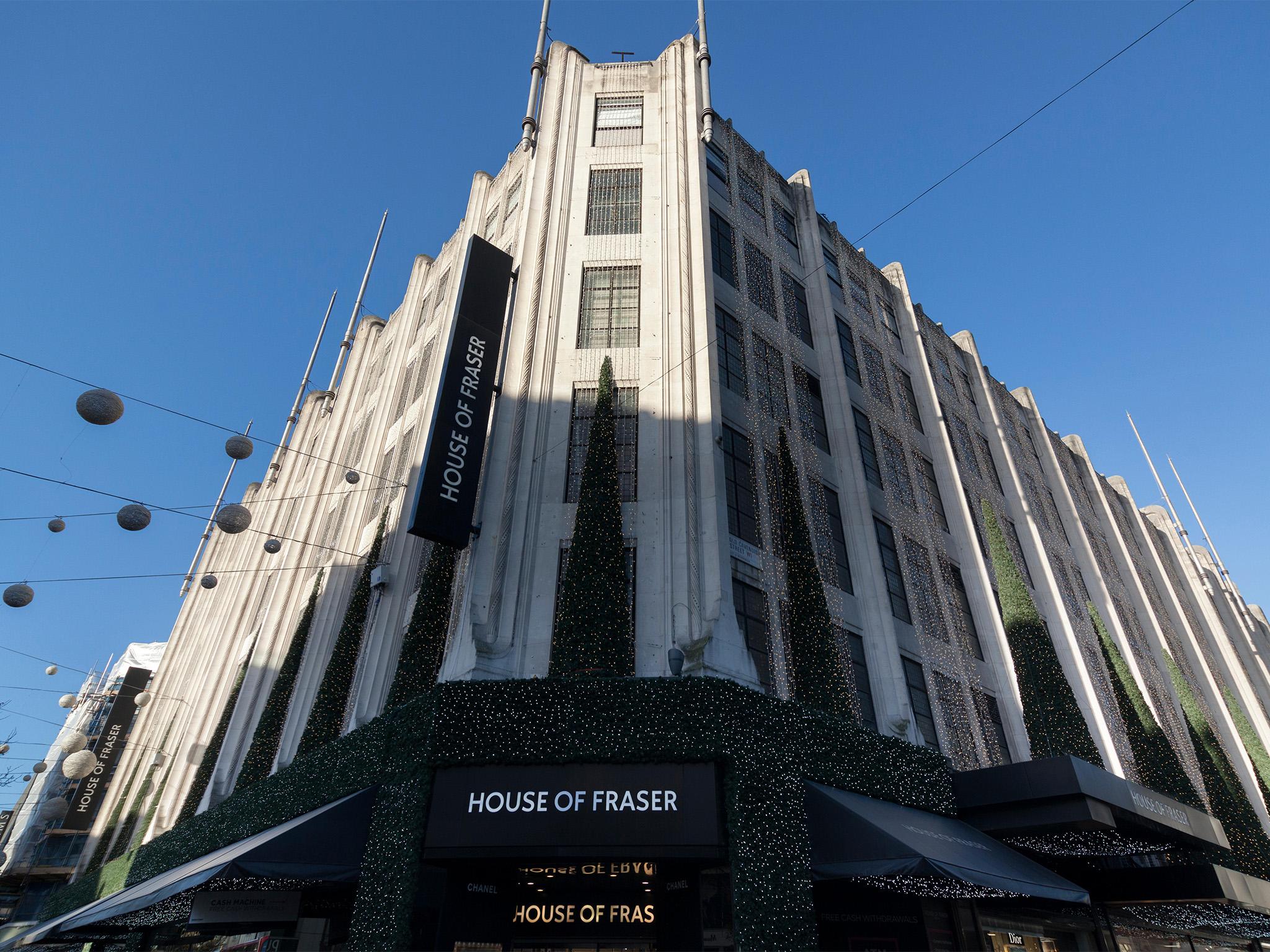House of Fraser closures show that the trend towards online shopping is not slowing down
It is not just shops, for many restaurant chains are in trouble too


The news from the high street is dire. Britons are still spending – overall consumption is not too bad – but they are not going out to do so. You get the goods or service sent to your door. Victorians would have recognised this, for that was how the well-to-do shopped, at least for their groceries. But that was a long time ago.
In the past few days we have had news of House of Fraser shutting 31 stores. Almost 100 Carphone Warehouse stores are shutting. So too are 50 Mothercare. The mighty Marks & Spencer is closing 100 – the list goes on and on. And it is not just shops, for many restaurant chains are in trouble too, with Prezzo closing 94 branches, Carluccio’s struggling, and even Jamie Oliver cutting back his businesses.
Part of this is the normal cut and thrust of what has always been a volatile business. The high street has never been for softies. There are areas, too, where there is strong growth: barber shops, pizza outlets, for example. But the inexorable trend is down and the question then is how far does this run. At some stage the shift to online will trough, but clearly not yet.
I was pondering this, when someone sent me Mary Meeker’s 2018 internet trends report, presented at the Code Conference in Rancho Palos Verdes, just over a week ago.
She is the great guru of the communications revolution, and her presentation of nearly 300 slides is clipped through in straightforward down-to-earth fashion in less than half an hour. It is terrific, the best snapshot of our changing world that there is. It is mostly about the US and China, but obviously of direct concern to us and to Europe. Here are just a few themes.
The shift to online is actually speeding up, not slowing down, and it seems that China has now passed the UK as having the highest proportion of sales online. Amazon is increasing its footprint, gaining a larger share of the growing market of online sales. The US and China together own all the top 20 internet companies ranked by market value, with the US having 11 and China nine. Five years ago the US had nine and China two of the top 20. This duopoly has rolled over every other country. Voice-controlled products are booming; mobile payments are burgeoning; and people are still increasing the amount of time they spend online, now up to 5.9 hours a day for adult Americans, with 3.3 hours of that on mobile devices.
Any signs of a plateau? Yes, in the sense that last year for the first time, smartphone unit sales did not grow at all, and internet connections worldwide, while still rising, are doing so a slower rate – 7 per cent last year against 12 per cent in 2016. As Mary Meeker says, with more than half the world online there are fewer people left to connect.
Any comfort for the high street? Well, in the sense that we are clearly still in the early stages of the online revolution, no. But what does seem to be happening is a blurring of the distinction between online and physical stores. In China people often seem to go online to select and brief themselves about the goods, but then go to a store to see the kit and make the purchase. In the US Amazon has famously bought Whole Foods. And I suppose more mundanely the fact that pizza outlets are doing well is a sign of that blurring: some people want their pizza delivered, others prefer to go out to eat it.
What clearly has to happen is for high streets to go back to what they used to do: deliver an enjoyable experience. You can see that happening in some of the more favoured locations, and the rediscovery of urban living by students and young professionals gives a vibrancy to towns that they have often lost. But there is a lot of despair about: boarded up stores and ranks of charity shops are not fun places to visit. The world of officialdom should note that its first duty is to do no harm. We have to have parking restrictions of course, but every time someone comes out of a restaurant to find a ticket on their car they will rethink whether it was really a good idea to go out rather than order in. Simple things like that, as much as the online revolution, shape our behaviour. But be sure about this: the revolution does sweep on.
Join our commenting forum
Join thought-provoking conversations, follow other Independent readers and see their replies
Comments
Bookmark popover
Removed from bookmarks